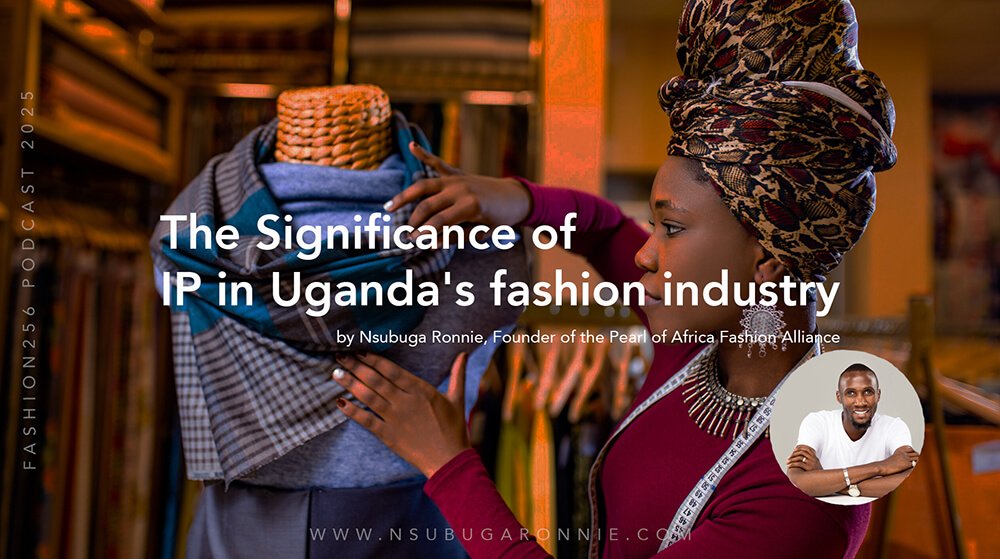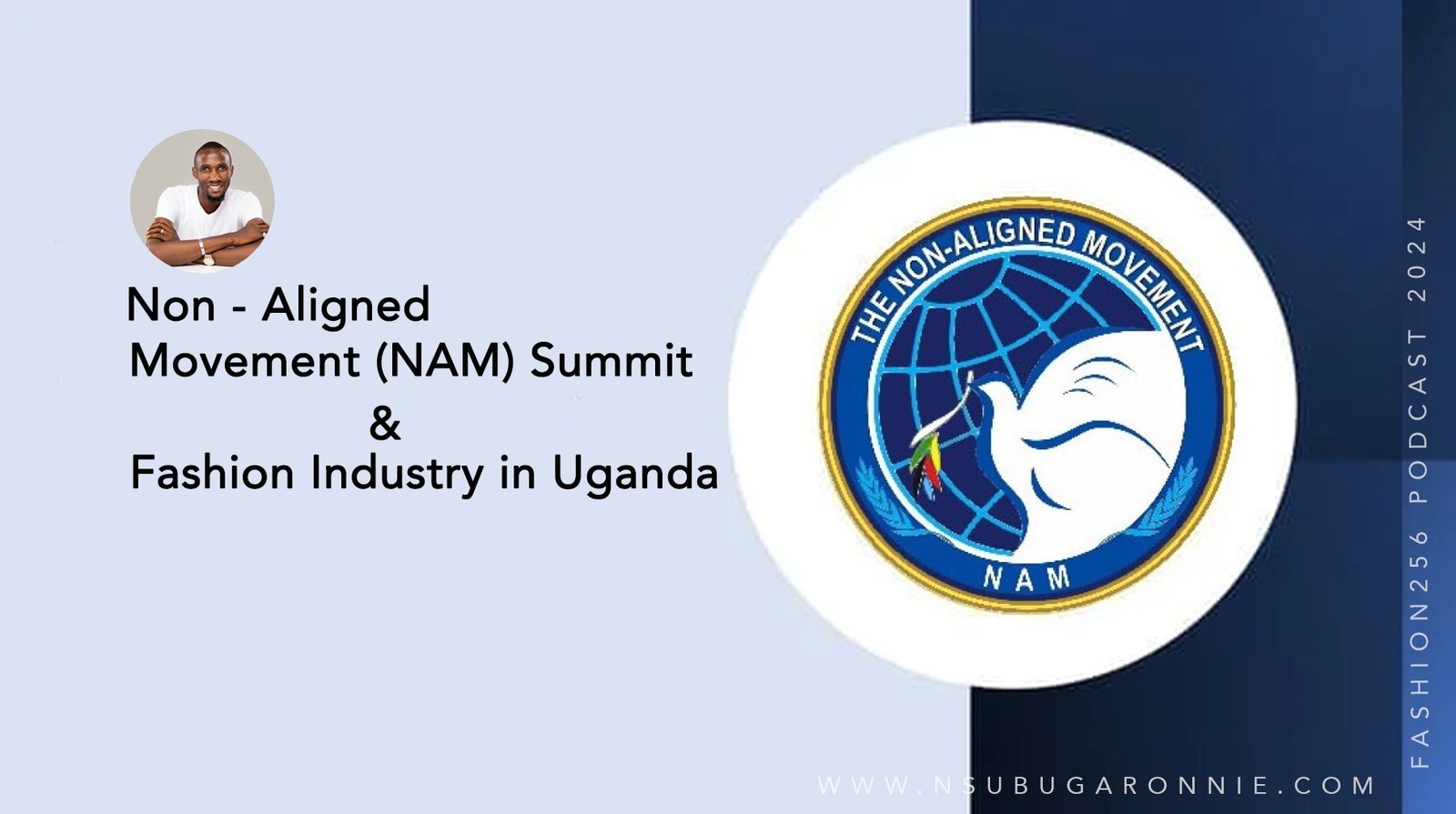A STEP-BY-STEP GUIDE TO LEARNING ABOUT THE FASHION INDUSTRY by Nsubuga Ronnie
The fashion industry is a dynamic field with numerous professional opportunities for candidates with diverse interests and skill sets, especially graduates from leaving school direct to the market. I have dedicated this article to students of Fashion who thirst to learn about the industry.
Learning about the fashion industry, including trends, best practices, top designers, and standards, can help you lay the groundwork for a future career in the industry.
If you're interested in learning more about fashion, you might want to read a guide.
In this article, I will discuss various fashion careers and approaches to learning about the industry.
What careers can you find in the fashion industry?
Depending on your professional interests, you can pursue a variety of careers in the fashion industry. If you're artistic, you could work as a designer, stylist, photographer, creative director, or in a production role such as sewer, cutter, or grader.
Jobs in marketing, public relations, merchandising, buying, retail, and sales, on the other hand, maybe a good fit if you're interested in the business side of fashion. Here are some roles to consider if you want to work in the fashion industry:
- Designer
- Manager
- Journalist
- Photographer
- Marketer
- Public relations specialist
- Merchandiser
- Buyer
- Sewer
- Cutter
- Grader
- Creative director
- Researcher
- Stylist
- Model
- Retail specialist
- Salesperson
How to Study the Fashion Industry
There are numerous ways for you to become acquainted with the fashion industry.
For example, you may be able to learn about the fashion industry through doing research, networking with others in the industry, pursuing professional opportunities, or formal education programs. With this wide range of options in mind, here's a step-by-step guide to learning about the fashion industry and developing a foundation of knowledge:
1. Examine social media trends
Social media can be an excellent source of information about the fashion industry and current trends. Follow designers, pattern cutters, photographers, models, and other fashion professionals across various platforms. You can read their posts, learn about their day-to-day work experiences, and gain the personal insight they reserve for their target audience.
2. Subscribe to newsletters
There are numerous newsletters designed for and by fashion students and professionals.
Sign up for some of these newsletters to receive regular industry updates, event news, and information about opportunities you can pursue. I, for one, started my Career by following websites such as Vogue, etc. and subscribing to its newsletters. You might be able to find specialized information from those newsletters that will provide you with entry-level information for people who are just starting in the fashion industry.
3. Read books about fashion history.
It's important that you know about the history of fashion and trends throughout time, so you can gain an understanding of the scope of the industry.
This insight may be gained by reading books or reviewing other historical resources. I started reading books like New African Fashion by Hellen Jennings, Africa in Fashion by Ken Kweku Nimo, and The Illustrated World of a Fashion Icon by Megan Hess to name a few. You can purchase most of these books online.
From here, you can gain a better understanding of new trends, why they emerge, and how they are influenced by the past.
4. Contact local fashion designers.
Making real-life connections with fashion professionals in your area may assist you in furthering your education in the industry.
Conduct some research to see if there are any local designers, pattern cutters, graders, stylists, or other professionals. If there are any, you can contact them and request a visit to learn more about what they do.
You may benefit from volunteering your services to them to gain hands-on experience and a deeper understanding of their work.
5. Locate a mentor who can provide guidance.
If you are successful in networking with other fashion professionals in your area, you may be able to find a mentor on whom to rely for career advice and guidance.
Identify potential mentors who have similar career interests to yours—for example, if you want to be a photographer, it may be most beneficial to develop a relationship with someone who works in fashion journalism.
6. Look for opportunities for hands-on learning.
Internships, volunteering, and entry-level roles are some of the most effective ways to learn about the fashion industry and develop your skills.
You might be able to find and apply for internships with specific designers or agencies looking for help during peak times, such as local fashion weeks.
Alternatively, if a specific brand interests you, look for retail positions with them to learn in a hands-on environment.
7. Consider formal fashion studies.
While you can learn about the fashion industry through your efforts and research, studying fashion formally may help you advance your knowledge.
There are numerous undergraduate fashion programs available to students across the country that can help you refine your skills and gain recognition.
Through these programs, you may be able to make more connections and gain access to school-sponsored internship opportunities that will help you establish yourself in the industry.
Tips for starting your career in the fashion industry
Starting a career in the fashion industry can be difficult because positions in this field are frequently highly competitive. Here are a few ideas to consider at the start of your career to help you achieve professional success:
- Network with others in the industry to identify opportunities for collaboration and job openings that match your needs and interests.
- To advance your knowledge and skills, gain experience working in fashion through internships, volunteering, and entry-level paid positions.
- Stay up to date on trends and popular designers in the fashion industry, so you can provide relevant, valuable insight as a professional.
- Build a portfolio by working on projects that will help you develop your competencies, regardless of the type of role you want to pursue.
- Boost your creativity and capacity for innovation by experimenting with different approaches to design, so you can offer a unique perspective in your work.
- Create an online presence through social media platforms and your website to gain industry recognition and easily connect with others.





